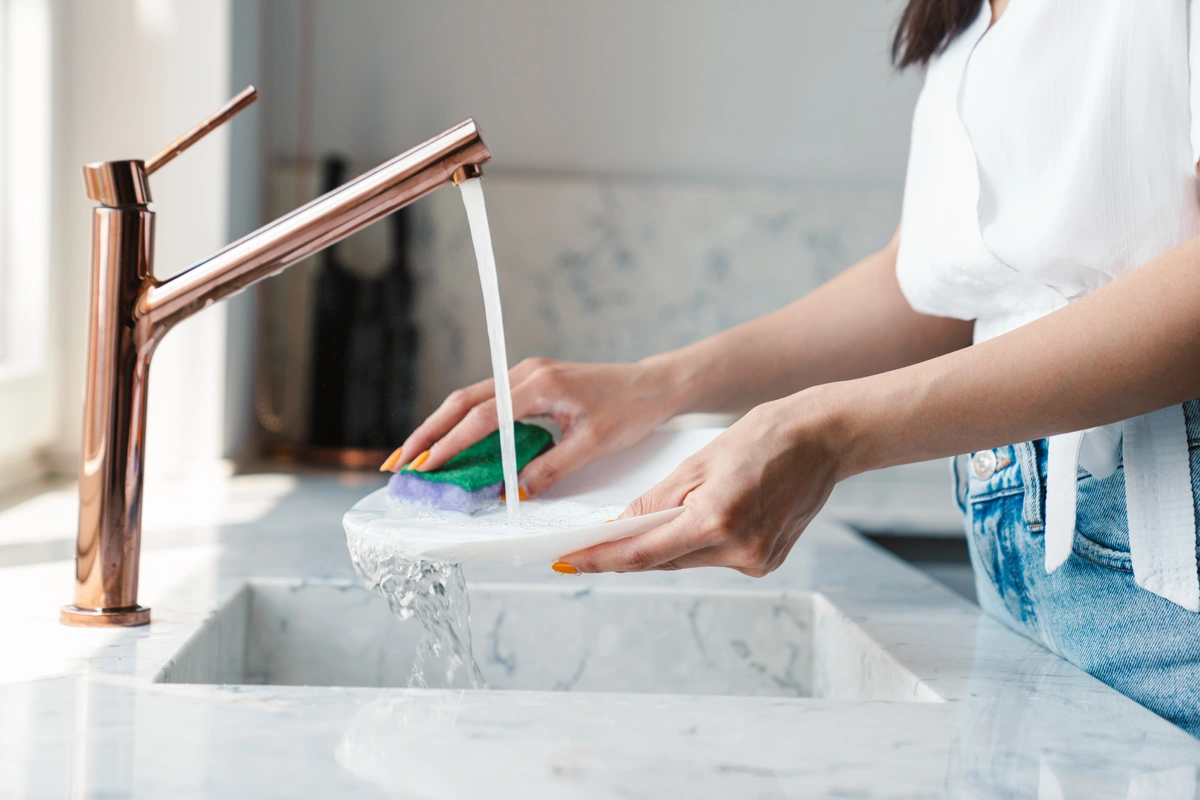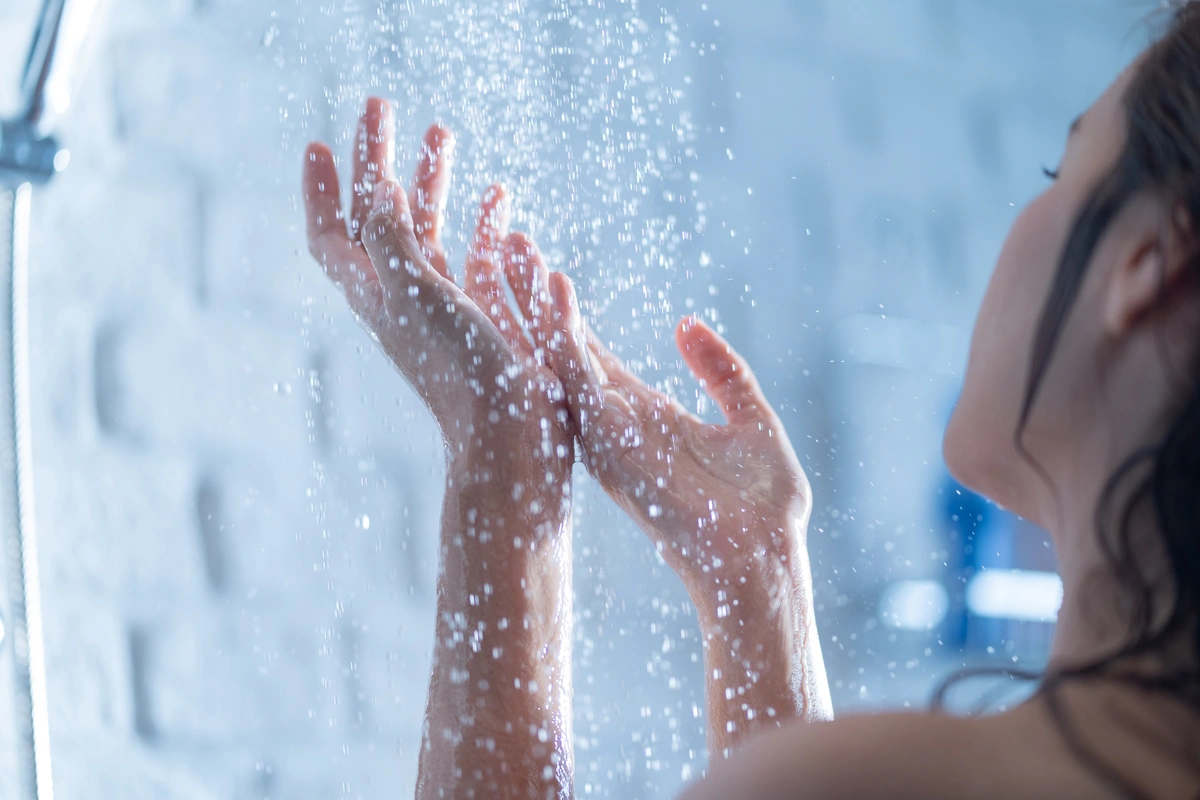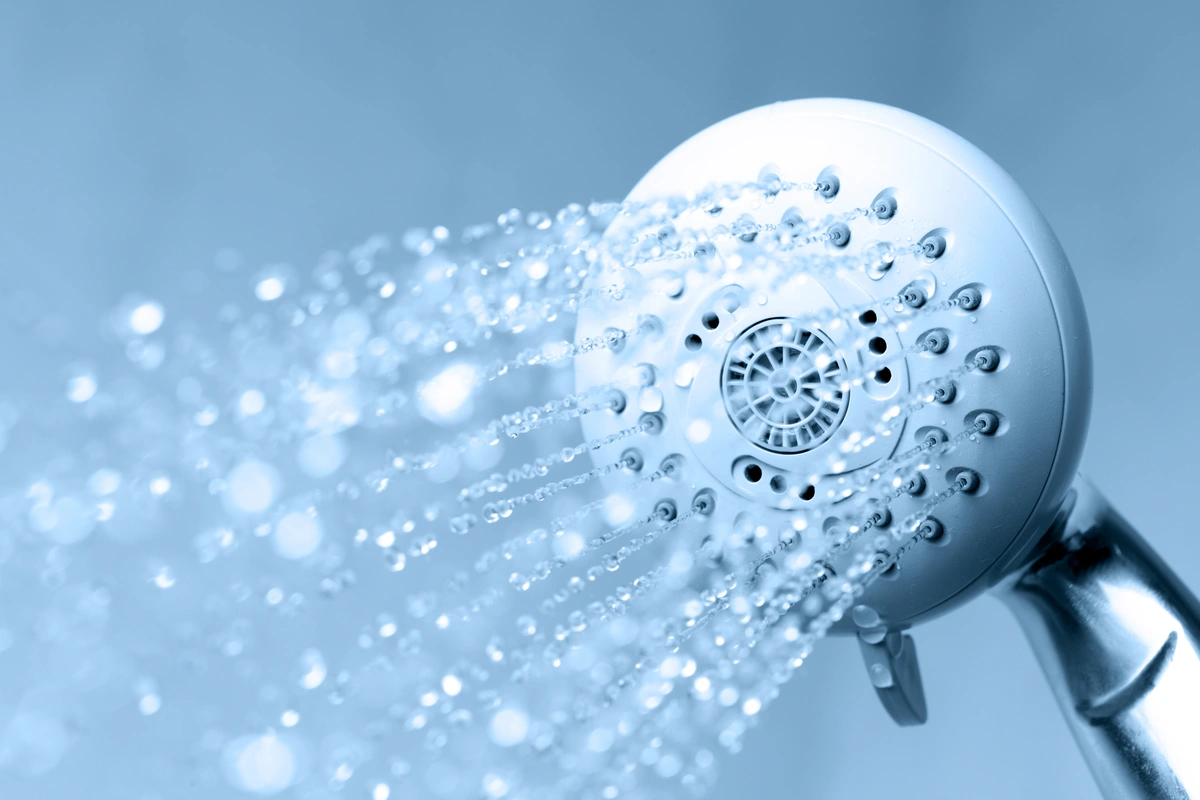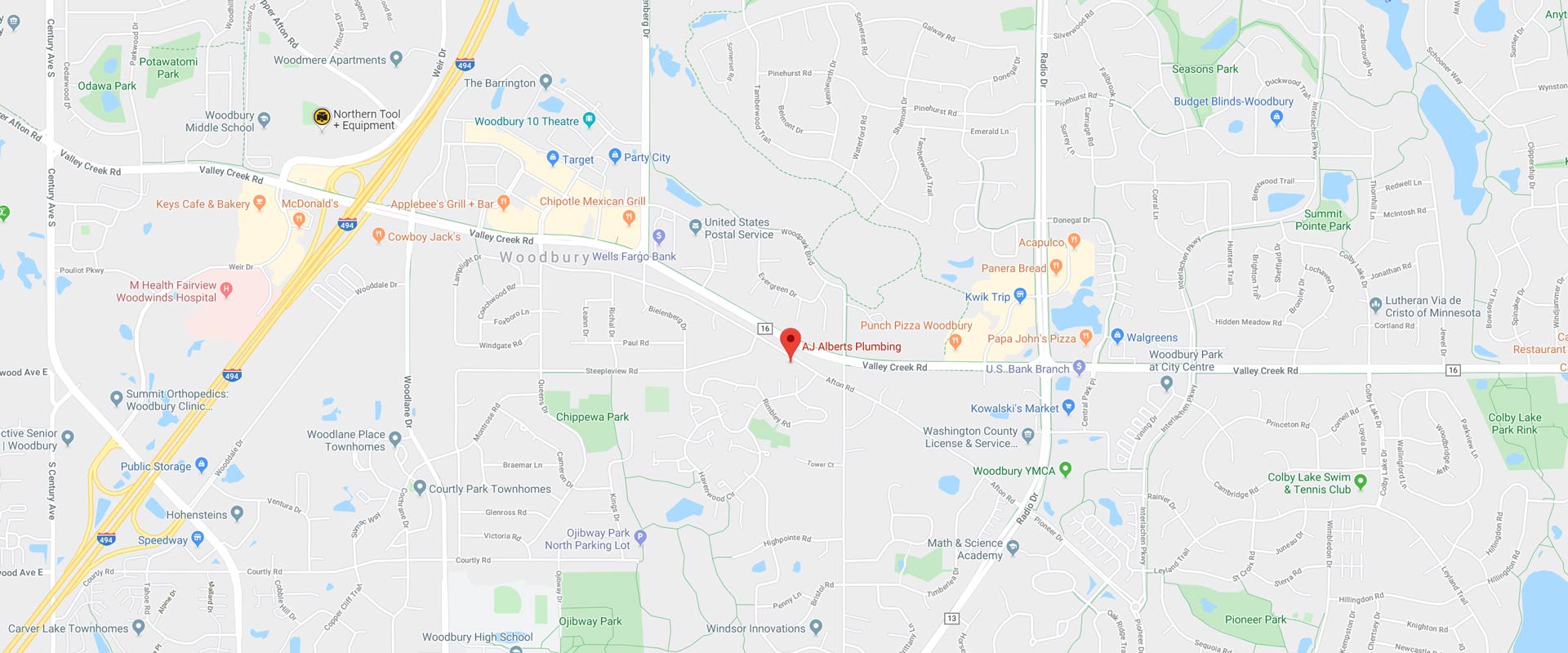Hard water. It’s a term you’ve probably heard before, but what does it actually mean, and why does it matter? Is it something that concerns you as a homeowner? In this blog, we’re going to delve into the world of water hardness, break down the water hardness scale, and explain how it affects your daily life.
Inside this blog:
- An easy breakdown of the water hardness scale
- 4 areas where the hardness of your water can affect your life as a homeowner.
- How you can test your water hardness
Keep reading to become an expert on the water hardness scale and find out how to ensure the water in your home is safe and smooth!
The Hard Water Conundrum 🤔
First things first, let’s demystify hard water. When we talk about hard water, we’re referring to water that contains a high concentration of minerals, primarily calcium and magnesium ions. These minerals are naturally present in the ground and often find their way into your water supply. While these minerals are not harmful to your health, they can have a significant impact on your plumbing, appliances, and daily routines.
The Water Hardness Scale 🌡️
To understand the concept of water hardness, we use a handy tool called the water hardness scale. This scale measures the concentration of calcium and magnesium ions in your water and assigns a numerical value to it. The most common unit of measurement is grains per gallon (GPG) or milligrams per liter (mg/L).
Here’s a simplified breakdown of the water hardness scale:
- Soft Water (0-3.5 GPG / 0-60 mg/L): Water in this range is considered soft. It contains very low levels of calcium and magnesium ions. Soft water is kind to your plumbing and appliances and makes for a bubbly, efficient lather with soap.
- Slightly Hard Water (3.5-7 GPG / 61-120 mg/L): Water in this range is mildly hard. It still allows for efficient soap lathering, but you might start to notice some mineral buildup in your appliances and on your fixtures.
- Moderately Hard Water (7-10.5 GPG / 121-180 mg/L): Water in this category is moderately hard. Soap lathering becomes less efficient, and you’ll likely see more scale buildup on appliances, faucets, and showerheads.
- Hard Water (10.5-14 GPG / 181-240 mg/L): Hard water is challenging to lather with soap and often leaves behind noticeable scale deposits. Your plumbing and appliances will experience increased mineral buildup.
- Very Hard Water (14+ GPG / 241+ mg/L): This is the highest end of the water hardness scale. Water in this category is very hard, making it extremely difficult to create a good lather with soap. Scale buildup is a common problem, and appliances may suffer from reduced efficiency and a shorter lifespan.
The Impact of Water Hardness 🌊
Now that you’re acquainted with the water hardness scale, let’s explore 4 areas where the hardness of your water can affect your life as a homeowner.
1. Household Cleaning

- Soft Water: Soft water makes cleaning a breeze. Soap lathers easily, and you’ll achieve sparkling dishes and spotless laundry without the hassle of soap scum or mineral deposits.
- Hard Water: Hard water can make cleaning a bit more challenging. Soap doesn’t lather as well, leading to the need for extra detergent. You may also notice soap scum buildup on your fixtures, tiles, and glass surfaces.
2. Appliance Lifespan
- Soft Water: Appliances like water heaters, dishwashers, and washing machines tend to have longer lifespans when operated with soft water. Soft water reduces scale buildup and stress on internal components.
- Hard Water: Hard water can take a toll on appliances. Scale deposits can accumulate in heating elements and pipes, reducing efficiency and potentially causing premature breakdowns.
3. Plumbing and Fixtures
- Soft Water: Soft water is gentle on your plumbing and fixtures. You’ll experience fewer clogs and less mineral buildup in your pipes, faucets, and shower heads.
- Hard Water: Plumbing and fixtures are more susceptible to mineral deposits and corrosion in areas with hard water. Over time, this can lead to reduced water flow and plumbing issues.
4. Skin and Hair

- Soft Water: Soft water is kind to your skin and hair. It allows for a smoother, more effective rinse, leaving your skin feeling soft and your hair shiny.
- Hard Water: Hard water can leave behind soap residue on your skin and hair, making them feel dry and dull. You may also notice more hair and skin care product buildup.
Testing Your Water Hardness 🧪
Curious about your water’s hardness level? You can easily find out by:
- Using a Test Kit: You can purchase a water hardness test kit at most hardware stores or online. These kits typically include test strips that change color based on your water’s hardness level.
- Professional Testing: Many water treatment companies offer free water hardness testing. They can provide you with a detailed report of your water’s mineral content.
Understanding your water’s hardness level is the first step toward deciding whether a water softener is right for your home.
Addressing Water Hardness Issues 🚰
If you discover that your water is on the harder side of the scale and want to tackle the issues associated with hard water, consider installing a water softener. A water softener is a device that removes calcium and magnesium ions from your water, effectively softening it.
Choosing the right water softener involves considering factors like your household size, water usage, and the hardness level of your water. Additionally, you may want to explore salt-based or salt-free water softeners, each with its own set of advantages and disadvantages.
Live With Softer Water in Your Home
Understanding the water hardness scale and its impact on your daily life is essential for homeowners. It can guide you in making informed decisions about water treatment solutions like water softeners. So, whether you prefer a bubbly lather in the shower or want to extend the lifespan of your appliances, knowing your water’s hardness level is a step in the right direction.
Contact our plumbing experts at AJ Alberts today and experience top-notch work from reliable plumbers. Let’s make the water in your home safer, cleaner, and tastier!



